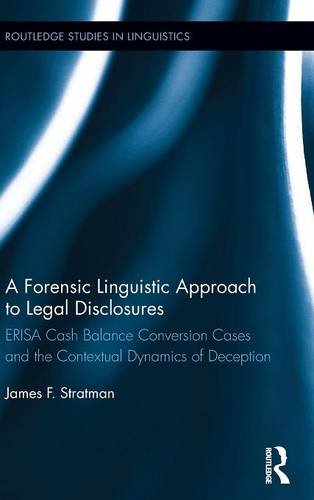

Most ebook files are in PDF format, so you can easily read them using various software such as Foxit Reader or directly on the Google Chrome browser.
Some ebook files are released by publishers in other formats such as .awz, .mobi, .epub, .fb2, etc. You may need to install specific software to read these formats on mobile/PC, such as Calibre.
Please read the tutorial at this link: https://ebookbell.com/faq
We offer FREE conversion to the popular formats you request; however, this may take some time. Therefore, right after payment, please email us, and we will try to provide the service as quickly as possible.
For some exceptional file formats or broken links (if any), please refrain from opening any disputes. Instead, email us first, and we will try to assist within a maximum of 6 hours.
EbookBell Team

0.0
0 reviewsThis book is a scholarly work of forensic linguistics that demonstrates how the principles of Gricean pragmatics and their recent elaboration in Information Manipulation Theory (IMT) can be of use to courts faced with deciding cases of allegedly fraudulent disclosure documents. The usual goal of legal rules for disclosure documents is not merely to prevent lying but other forms of deception as well. In particular, the goal of these rules is to force the communicator to reveal information that could cause material harm to certain receivers, harms that the communicator, for various reasons of self-interest, might prefer to keep secret or hidden. Because IMT and the Gricean framework have seldom been used in published studies to investigate legally mandated disclosure documents aimed at laypersons, this book seeks to enrich current explications of the rhetorical "workings" of deceptive disclosures within the broader Gricean tradition of pragmatics. The book questions the fundamental relationships among Grice’s maxims as well as the much circulated notion that violation of some maxims is more deceptive and more immoral than violations of others. In addition, the book also attempts to show how various other theories and research in discourse linguistics and reading comprehension can be used to support IMT analyses in addressing the discourse processing issues unique to legally required disclosure texts. In this way the book contributes to the larger dual mission of the field of forensic linguistics, which is both to understand and to improve courts’ impact on social justice.